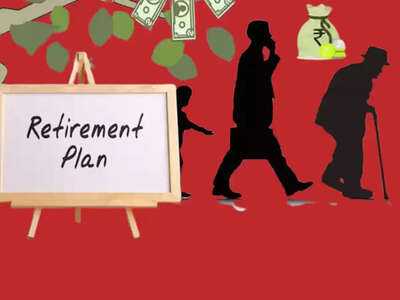Due to the FIRE trend, retiring at the age of 40 has become a fashion nowadays, but is it the right decision? Know the 7 truths related to early retirement, which can change your thinking and planning.
These days everyone is talking about the 'FIRE' (Financial Independence, Retire Early) movement - that is, getting financial freedom at an early age and retiring by the age of 40. Actually, it may sound very good. But is this dream as beautiful as you are thinking? Yes, is it really a smart decision to retire at the age of 40? So we are going to tell you those 7 'unwanted truths' of retiring at 40, which no one talks about. These truths can change your entire life, so do not make the mistake of ignoring them even by mistake.
1. The burden of boredom and emptiness
Initially, retirement may seem great that now there are no meetings, no deadlines. But after some time, many people can suddenly start feeling emptiness and boredom. So when you do not have any routine or big target, the days start to seem very long.
2. Social isolation
Actually work is not only a means of earning money, it also gives you a social circle and identity. So when you retire at the age of 40, you may be cut off from your old social circle and it may be difficult to create a new circle.
3. Fear of unwanted expenses
You may have created a good fund for retirement, but have you calculated inflation and unwanted expenses (like medical emergency, home repair or children's education) properly? Retiring at the age of 40 means that you will have to live without any regular income for the next 40-50 years.
4. Health insurance and medical expenses
If you were dependent on the health insurance provided by the company, then now after retirement you will have to buy expensive insurance yourself. So this is a reality which is called a big expense after retirement.
5. Identity threat
Actually your work does not only give you money, it is also an important part of your identity. Yes, when people ask, "What do you do?", then how will it feel to answer "I am retired" at the age of 40? Many people start feeling a crisis about their identity after retirement. What are you when you are not who you used to be?
6. Risk of market fluctuations
You may have invested your retirement fund somewhere, but the stock market or investments are always subject to fluctuations. So if the market crashes or is in a recession for a long time right after you retire, your fund may deplete quickly. Retiring at a young age means you may not have much time for the market to recover, which may also put your financial security at risk.
7. Needs of children and family
Let us tell you that if your children are young or there are big expenses like their education and marriage coming up, then the decision to retire at the age of 40 can be a big one. But do you have enough funds to meet all these needs, that too without any new income? You should always strike the right balance between the growing needs of your family and your retirement.
Retiring at the age of 40 may be a dream, but it is not for everyone. Retirement does not just mean leaving work, but adopting a new lifestyle. So keep these 7 unwanted truths in mind, strengthen your financial planning and only then consider this big decision. (Note: The news is based on general information)
5 FAQs
Q1. What is the FIRE movement?
FIRE (Financial Independence, Retire Early) is a financial trend in which people plan for early retirement by saving and investing more at a young age.
Q2. Is it really beneficial to retire at the age of 40?
It depends on the financial planning, health and mental preparation of the person. Without the right strategy, it can be risky.
Q3. What is the biggest challenge after early retirement?
Problems like boredom, identity crisis, lack of regular income and health insurance usually come up,
Q4. Is it necessary to have sufficient funds for early retirement?
Yes, it is very important to plan your entire post-retirement expenses and emergency fund in advance.
Q5. What should you think about before retiring at the age of 40?
Physical and mental health, family needs, long-term income source, insurance, and social connections—keep all these things in mind.
You may also like

BREAKING: Freddy Brazier, 20, 'taking time out to work on a few things' after shock baby news

Breakthrough as AI tool rolled out in NHS stroke centres to triple full recovery rates

Transfer news LIVE: Guehi to Liverpool U-turn, Isak announcement, Man Utd done deal

Marc Guehi to Liverpool transfer: Major update as angry Oliver Glasner handed exit option

Iga Swiatek explains who she was texting on court immediately after US Open win







